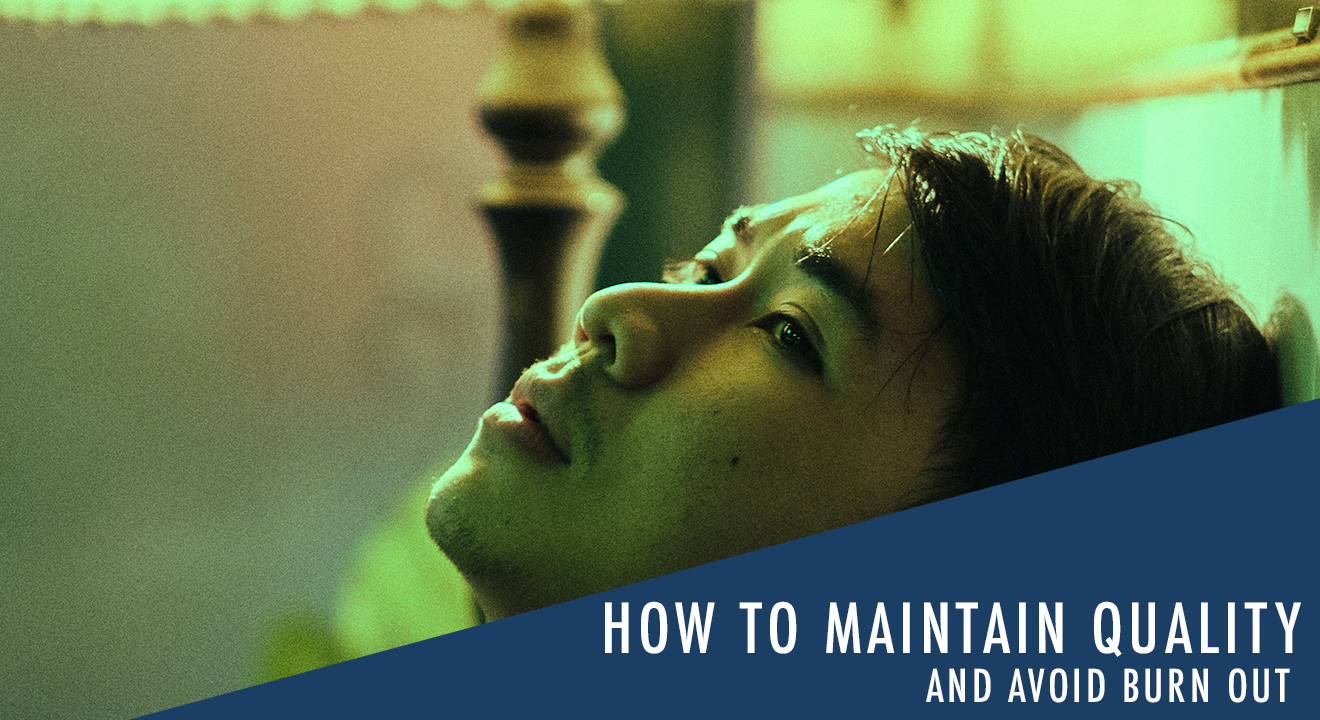Let’s face it, maintaining filmmaking quality is difficult! These days, it has become even more challenging dealing with a global pandemic. But regardless of the regular hurdles we face as content creators, staying consistent is very hard to do with little resource. How many times have we heard this scenario?
A person has a really great script… the filmmaker has done extensive casting, and the project has an amazing cinematographer attached… BUT… the execution of it falls apart during production and the filmmaker is frustrated.
Well, this is certainly a common tale from the creatives I have spoken to over the years. Many of these folks start the process with extreme vigor, only to be defeated somewhere along the way, and ultimately find themselves burnt out. Unlike Hollywood, independent filmmakers do not have the financial means in place for certain checks and balances. Things like schedule control, back office crew support and money to solve basic problems. Often times, indie filmmakers wear multiple hats and over stretch themselves daily. It is very easy for an individual to be burned out, or to lose their mental focus on the things that matter the most. Maintaining filmmaking quality suffers. In today’s blog post, I would like to offer a few thoughts on how you can maintain quality throughout the entire process without the monetary means.These tips are designed to help you in maintaining filmmaking quality.
- Take baby steps. Production is overwhelming. There’s no reason for you to rush into things. Take time to do your casting properly, and create a production plan that breaks things down day by day. Do not be afraid to separate your production schedule to give your production team the ability to rest and to regroup. Instead of shooting 6 days a week, try 5, or even 4. Working 12 to 15 hour days on a movie set is exhausting, and with the global pandemic still raging on, days can feel even longer. This is why it is so important for you to evaluate your production schedule and create a plan that gives you a breather so you do not miss the things that are most important i.e. directing your actors and getting quality shots.
- Ask for help! Another big aspect of maintaining quality is delegation. I know this may sound counterintuitive to DIY filmmakers, but movie-making is a team sport. It requires multiple perspectives and skills to balance out. I would advise any filmmaker to find an assistant or someone that they can delegate certain tasks to. It will allow you (as the producer or director) to focus on the things you need to. If you are running around to get wardrobe, props or sandwiches, more than likely you will spend energy on those things and not on making your best movie.
- Hire pros. Find department heads that know their job well. It goes without saying that a good crew is worth their weight in gold. Finding a cinematographer and sound person who is really good at their job will help alleviate the back pressure of you worrying about technical aspects. You want to be aware of those things, but you should trust the crew you put in the place to manage those areas effectively. Take time each and every day to discuss your plan thoroughly with your camera and sound department. Ask them to be honest about the conditions, and work together as a unit to solve problems. If you have a location that has created challenges for your sound, then you should work with your sound person to find a solution.
- Take breaks. I don’t know about most of you reading this, but I have a hard time working on set with a face mask strapped on all day. Although I am a strong advocate for face coverings and PPE these days, I would be lying if i said it wasn’t challenging. I am only human, and I have my threshold. I need frequent breaks to make it through the day. Be sure to understand what threshold you, your cast and your crew have, and calculate that into your overall production schedule. You may not be able to squeeze as many shots into a schedule as you did pre-pandemic so calculate that accordingly. Plus, safety is the first priority, so give your team time to do things safely.




